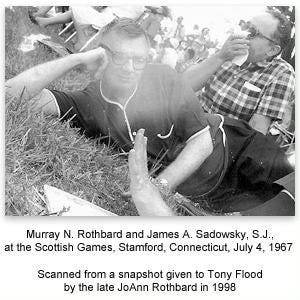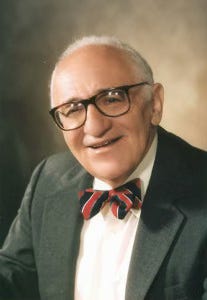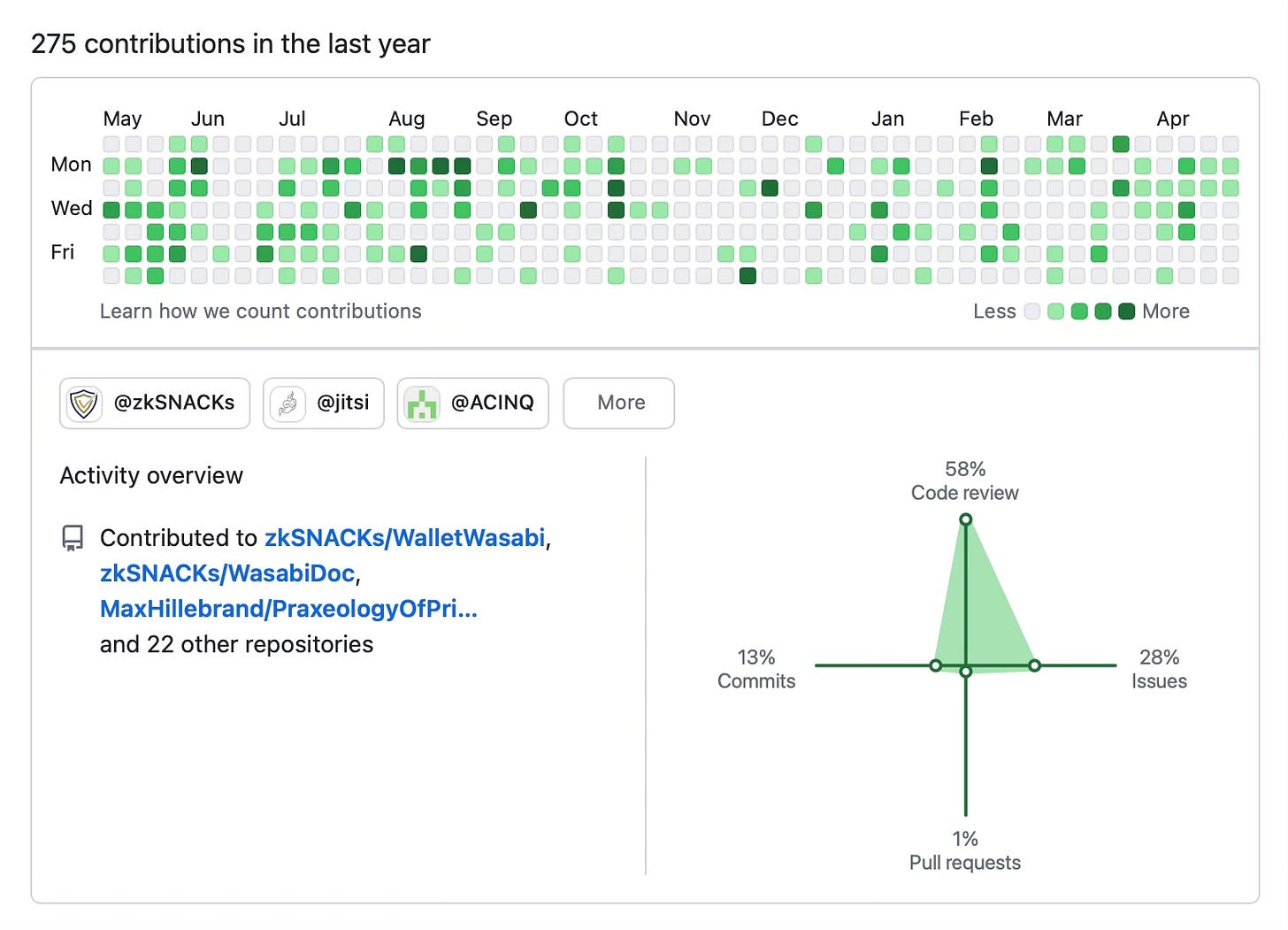Would Murray Rothbard have become Catholic?
Dead philosopher economists
At the gym after Mass this morning, I found these two articles:
Then this one writing this post:
I enjoyed them greatly.
Rothbard was an atheist.
But his thoughts scream IMPORTANT for Christians today.
So do the software tools his intellectual protégés create today, 30 years after his death.
Max Hillebrand is a Rothbard protégé.
His first 15 minutes on Preston Pysh’s podcast got me to search “rothbard catholic” on my old gym phone on the bench.
He’s an open-source software entrepreneur, primarily acting as a project manager for Wasabi Wallet — an open-source, non-custodial, privacy preserving Bitcoin wallet for Windows, Linux, and Mac.
He’s acting inspired by Rothbard.
So are many Bitcoiners.
If Rothbard’s ethos is eventually Catholic…
A fuller understanding of liberty, one compatible with the other truths of human nature, will necessarily lead one straight to the Catholic Church. Rothbard’s own conception stands somewhere in between, as an almost unfinished work (Bonchamps, 2012).
I don’t know.
Here are some quotes.
All from the above articles, or from links in them.
Bonchamps, writing on Rothbard:
I can’t say with even the slightest confidence that Rothbard ever considered Catholicism seriously as a religious truth. Given another 20 years, though, I’d like to think he might have come as far as Mortimer Adler did.
Rothbard:
I find theology fascinating because it’s sort of a deductive system, something like praxeology, except of course the axioms are different. But once you have the axioms, you can spin almost the whole thing out. And you can talk about coherent deductive systems versus incoherent. … [O]ne slight difference in axioms – another thing about theology as a deductive system – one seemingly unimportant difference in the axioms can cause tremendous differences in political or social conclusions. … [That includes both] creatology, the science of the first days … [and] eschatology, namely [the] science of the last days. (pp. 30-31)
Rothbard:
One of my favorite writers of all time is G.K. Chesterton.
Rothbard:
Conversely, it is no accident that the Austrian School, the major challenge to the Smith-Ricardo vision, arose in a country that was not only solidly Catholic, but whose values and attitudes were still heavily influenced by Aristotelian and Thomist thought.
Rothbard:
Thus, even though I am not a believer, I hail Christianity, and especially Catholicism, as the underpinning of liberty. (And also of art, music, and architecture, but that’s another topic.)
Nick Hankoff, writing on Rothbard:
Rothbard didn’t believe in God, or he believed that God was wholly unknowable from the human perspective. But he broke contacts with Ayn Rand and her cultic circle for their attacks on his marriage with a Christian woman. He died at the young age of sixty-nine, just a few years after he discovered the proto-Austrian elements in Scholastic thought.
Anthony Flood, writing on Rothbard in 2019:
“I was sure I was going to predecease him.”
That’s how my friend Father James A. Sadowsky (1923-2012) confirmed the news of the passing of Murray Newton Rothbard (1926–1995) two dozen years ago today.
…
I will continue to treasure his writings and share them with anyone who’ll listen. But as I settle accounts with my erstwhile political conscience, I have to point out where, in my opinion, he was wrong.

Flood, contextualizing his friend’s thought, wraps up his article:
Murray’s vision applied to America? What it would be like in practice? … Political success is not merely about getting the words right or even about disseminating the right words.
“Where there is no vision, the people perish” (Proverbs 29:18).
And if they don’t know how to realize their vision, they can also perish with it.
Bitcoiners like Max don’t want to perish with Murray’s vision.
So they’re acting to realize it outside of modern politics.
They’ve made progress — the Bitcoin network hit the 1 billion transactions mark this week, and is the world’s ninth-largest asset fifteen years after its launch.
“Would Rothbard have become Catholic?”
Only the Lord knows.




